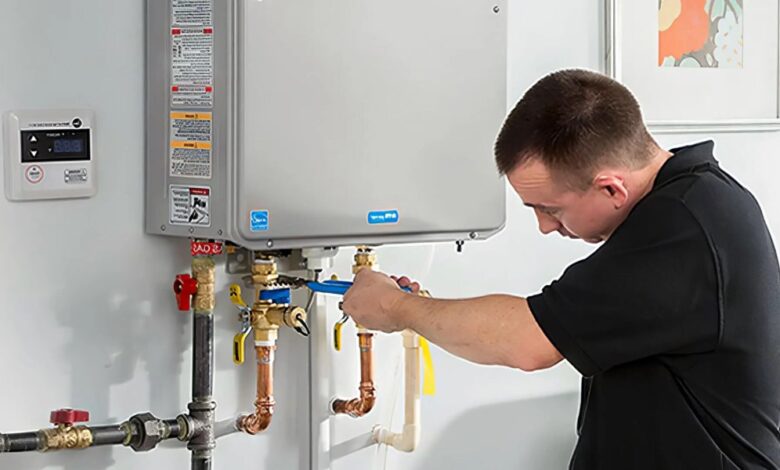What to Look for in a Hot Water System for Long-Term Efficiency

Choosing the right hot water system is an essential decision for any homeowner. It’s not just about having a steady supply of hot water; it’s about selecting a system that offers long-term efficiency, reliability, and value for money. With so many options available, understanding what to look for can save you from costly repairs, skyrocketing energy bills, and unnecessary replacements down the road.
Why Efficiency Matters in Hot Water Systems
Water heating is one of the largest energy expenses in a household, accounting for around 15-30% of utility bills. An inefficient hot water system can cost you significantly over time, both financially and environmentally. Opting for an energy-efficient system reduces your carbon footprint and ensures sustainable living without sacrificing comfort.
Key Factors to Consider When Choosing a Hot Water System
When selecting a hot water system for your home, keep these critical factors in mind to ensure long-term efficiency and satisfaction:
1. Energy Source
The energy source of your system plays a major role in its overall efficiency and operational costs. Common options include:
- Electric Systems: Affordable to install but generally more expensive to run unless paired with solar energy.
- Gas Systems: Typically more cost-effective than electricity, especially for homes with a natural gas connection.
- Solar Systems: High upfront cost but substantial long-term savings with government rebates available.
- Heat Pump Systems: Highly efficient, using ambient air to heat water, but dependent on climate.
Choosing the right energy source depends on your location, household needs, and budget.
2. Size and Capacity
Selecting the right size system ensures you have enough hot water without wasting energy heating more than you need. Consider:
- Small households (1-2 people): 80-160 liters
- Medium households (3-4 people): 160-315 liters
- Large households (5+ people): 315 liters and above
An undersized unit will run out of hot water quickly, while an oversized unit will waste energy.
3. System Type
There are two main types of hot water systems:
- Storage Systems: Heat and store water in an insulated tank. Available in electric, gas, solar, and heat pump models.
- Continuous Flow (Tankless) Systems: Heat water on demand, providing endless hot water without storage losses.
Continuous flow systems are generally more energy-efficient, but storage systems may be better for households with high simultaneous usage.
4. Energy Efficiency Ratings
Always check the system’s energy efficiency rating. Higher star ratings equate to lower energy use and reduced running costs. Over the lifetime of the unit, a higher efficiency model can save you hundreds, if not thousands, of dollars.
5. Installation and Maintenance
Proper installation is critical for the optimal performance of any hot water system. Working with a professional plumber Rockhampton ensures correct installation according to local regulations and manufacturer guidelines.
Additionally, choose a system known for low maintenance requirements and easy servicing. Regular maintenance, like flushing the tank or inspecting anode rods, will further extend the life of your system.
6. Warranty and After-Sales Support
Invest in a hot water system that offers a solid warranty. A longer warranty period is often an indication of better product quality. Also, check that the manufacturer provides reliable after-sales service in your area.
Why Location Matters
Your climate and local water conditions impact system performance and longevity. For instance:
- Cold climates: Heat pump systems may lose efficiency.
- Areas with hard water: Mineral buildup can affect the lifespan of some systems; a water softener or specific model may be needed.
Consulting a local expert ensures you choose a Hot Water System Rockhampton that’s suited to the specific demands of your area.
The Role of Professional Installation
Even the best hot water system will underperform if incorrectly installed. A professional plumber will:
- Ensure the system is sized correctly
- Optimize placement for maximum energy efficiency
- Install necessary safety valves and regulatory compliance features
- Provide advice on maintenance schedules
Engaging an experienced installer minimizes risks of leaks, inefficient operation, and warranty voiding due to improper setup.
Red Flags to Avoid
When shopping for a hot water system, watch out for:
- Extremely low-cost systems with minimal warranty coverage
- Brands without local service agents
- Systems with poor energy ratings
- Sellers who push a system without assessing your household needs
Choosing based solely on upfront cost often leads to higher long-term expenses.
Final Thoughts
A hot water system is a long-term investment that directly impacts your home’s comfort, energy usage, and environmental footprint. By focusing on energy efficiency, correct sizing, appropriate energy source, and professional installation, you can enjoy reliable, cost-effective hot water for years to come.
For expert advice and professional installation services in Rockhampton, partnering with specialists like 24 HR Plumb Solutions ensures that your hot water system will deliver optimal performance and efficiency from day one.





